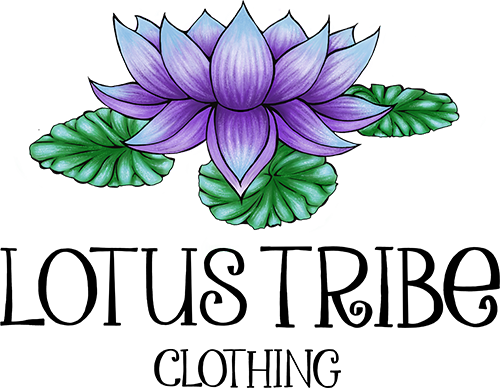What is gratitude?
Gratitude is the embodied feeling of being thankful for what you have. Eckhart Tolle said "Acknowledging the good that you already have in your life is the foundation for all abundance."

Research has shown, that people who practice gratitude, live happier and more fulfilling lives. So, are happy people more grateful or are grateful people happier? The power of gratitude is so strong, that there has been an explosion of research in Public Health, Neuroscience and Positive Psychology to figure this out. Not only does practicing gratitude impact psychological health, but it also impacts physical health and social/emotional health and overall wellness.
The Science of Gratitude
Research done at UC Berkeley's Greater Good Science Center did a study that included more than 1,000 participants, between the ages of 8 and 80 years old. They found that people who practice gratitude regularly had these health improvements:
Physical
- Stronger immune systems
- Less bothered by aches and pains
- Lower blood pressure
- Exercise more and take better care of their health
- Sleep longer and feel more refreshed upon waking
Psychological
- Higher levels of positive emotions
- More alert, alive, and awake
- More joy and pleasure
- More optimism and happiness
Social
- More helpful, generous, and compassionate
- More forgiving
- More outgoing
- Feel less lonely and isolated.

Gratitude can change not only the way you think, but your brain itself. Every thought and action uses and sends an impulse down a neural pathway. The pathways that we use the most often, become easier and easier to use, and eventually become a habit. They found that the simple act of thinking of gratitude, even if you have not found something to be grateful for, can create new neural pathways. They also found that people who practiced gratitude, showed greater medial prefrontal cortex activation when they were in an fMRI scanner.

UC Berkeley's Greater Good Science Center says that there are two components of gratitude. The first is an affirmation of goodness. This does not mean that life is perfect, but that we affirm and acknowledge that there are things in our life to be grateful for. The second part is figuring out where the goodness comes from and actually giving thanks.

They also found that gratitude helps people appreciate and be in the present moment, helps prevent negative and toxic emotions from arising, helps people become more stress resistant and helps them develop a greater sense of self worth.

Harvard Medical School has also reported that people who wrote about their gratitude for 10 weeks, were not only more optimistic and felt better about their lives, but they exercised more often and visited the doctor less often, than those who focused on aggravations.
They also found that couples, who express gratitude for one another, felt more positive about their partner, and that they felt more comfortable talking about concerns and worries with their partner.

Additionally, they found that managers, that express gratitude and say "Thank you" more often in the workplace, have happier and more productive employees.
How to cultivate an attitude of gratitude
Robert Emmons, the leading researcher in Gratitude, a Psychology professor at UC Davis who is part of UC Berkeley's Greater Good Science Center and author of Thanks! How the New Science of Gratitude Can Make You Happier has developed 10 ways to become more grateful.
1. Keep a gratitude journal: Write everyday about the things you are grateful for in your life.

2. Remember the hard time: Don't dwell on the past, but it can be helpful to remember when times were more difficult than they are now, to be grateful of the present.
3. Ask three questions: “What have I received from __?”, “What have I given to __?”, and “What troubles and difficulty have I caused?”
4. Give prayers of gratitude: Many spiritual traditions have prayers of gratitude as part of their practice. This helps people to realize the source of all they are and will ever be.
5. Use all of your senses: Appreciate what it is to be human. We can be delighted through our senses of touch, taste, sight, vision and hearing. Be grateful for how delicious the food on your plate is (and that you have food on your plate), appreciate the embrace of a loved one, feel the nourishment of a beautiful song, appreciate the beauty and feel connected to the landscape you can see. In short, experience everything and be grateful for the magical experience that is being human.
6. Use visual reminder: Have some sort of visual reminder, that you will see in your everyday life, to help you be more mindful and grateful for what you have. This could be a piece of jewelry that reminds you to be grateful, a gratitude wall, etc.

7. Make a vow to practice gratitude: Research has shown that making an official oath, to practice a behavior, helps people to be successful in achieving that goal.
8. Watch your language: People who are successful at practicing gratitude, often develop patterns of speech that include gifts, blessings, abundance, etc. that focus less on themselves, and more on what people and life itself, have brought you or done on your behalf.
9. Go through the motions: When you go through a motion (action) of gratitude, the feeling of gratitude kicks in. These include things like smiling, saying thank you and writing letters of gratitude.

10. Think outside the box: Look for and find new ways to express and be grateful.
Click here to complete the UC Berkeley Greater Good Science Center's Gratitude Questionnaire and asses your current level of gratitude.
Conclusion
The research is in, to live a happier, healthier and more fulfilled life, practice gratitude. If you have your health, be grateful. If you have food to eat, be grateful. If you have clean air to breathe and water to drink, be grateful. If you have friends, family and loved ones, be grateful. If you are not at war, be grateful. If you caught a beautiful sunset, be grateful. If a stranger blessed you with their wonderful smile, be grateful. Be grateful for the big and small things, and If you don't have some of these things, that is ok too, just be grateful for what you DO have. Life is beautiful and can be lived like a celebration. Rejoice and be grateful.

Gratitude is a feeling and process of being thankful for all that you have. It is a practice, and like any other habit, it takes time to cultivate and grow. There is no better time than now to start. So, I ask you, what are you grateful for today?

